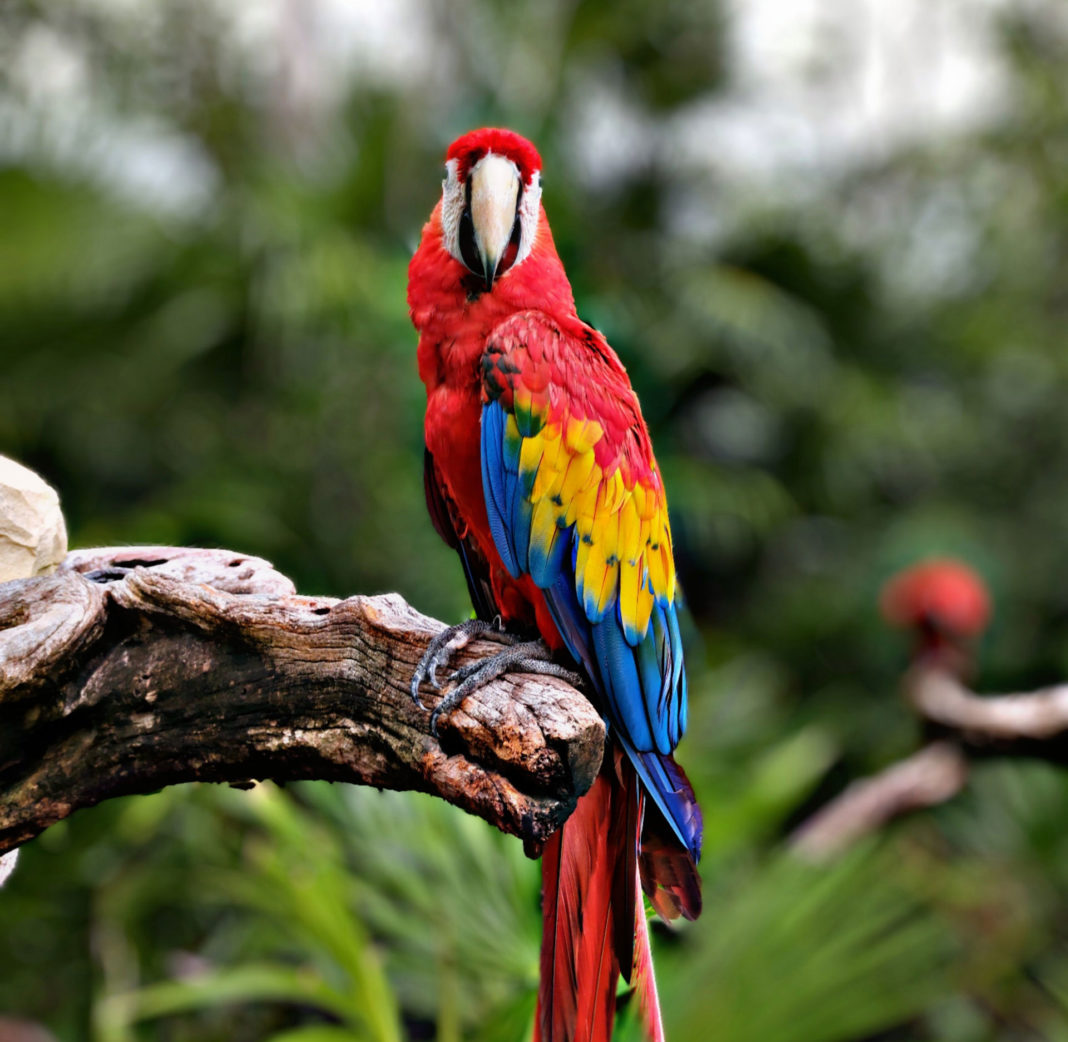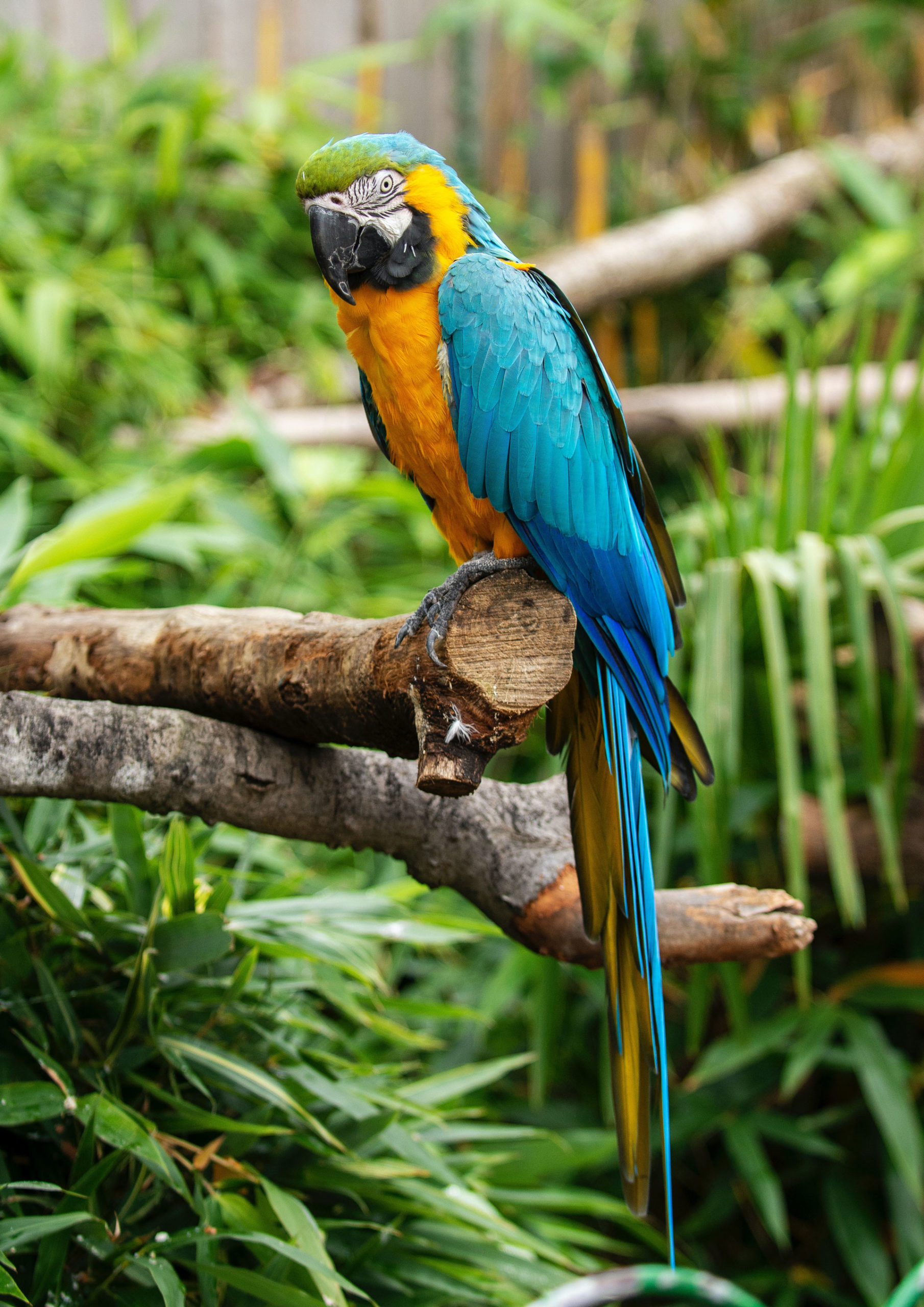Birds don’t make easy pets, but parrots, lovebirds and cockatoos are more suited to domestication and can even learn to talk!
Small or medium-sized exotic birds such as lovebirds and cockatoos are sociable and interactive creatures that adapt extremely well to living with humans. Most commonly chosen as pets, though, are parrots. They measure between thirty and forty centimetres and are highly intelligent as well as skilled climbers. Perhaps the most popular species is the macaw.
The main appeal of parrots is their ability to imitate voices and learn and repeat words back to their owners. They are also omnivores and don’t require much special care. Ara macaws, on the other hand, are granivores. Males tend to be larger, have brighter plumage and can learn to reproduce sounds more easily.
Many people choose to have a pet parrot because it’s such fun to listen to them talk. But teaching them is not easy. You have to gain their trust and have a lot of patience. The best times for ‘lessons’ are in the morning or evening. Start with simple words that are easy to relate to an action, such as ‘yummy’ when you give him a treat, ‘I love you’ when you stroke his neck, or ‘good morning’ when he sees you in the morning. Repeat it about five to ten times along with each action. Keep doing it every day and he’ll eventually repeat it.
Parrots are known to have a temper and can occasionally be quite aggressive, especially if frightened. They can also develop preferences for certain people and show affection towards only one member of the family.
They need a spacious, preferably rectangular, cage and it’s important to find a nice bright, noise-free place where there’s no draught. They can learn to live loose in the house, but you will have to gain their trust first. Remember to position the cage at eye level because if it’s too high, he will look down on you and think he is the boss! Conversely, don’t put him below eye level or he’ll feel dominated and might get depressed. If he becomes aggressive, lower the cage for a while, but take extra care if you have pet cats and dogs around as they find furry friends pretty scary. Be respectful and never tease or punish your bird. It’s also important to clean the cage at least twice a week and give it a thorough clean three times a month.




